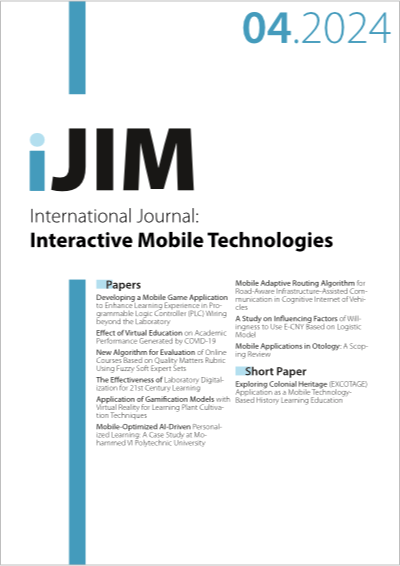New Algorithm for Evaluation of Online Courses Based on Quality Matters Rubric Using Fuzzy Soft Expert Sets
DOI:
https://doi.org/10.3991/ijim.v18i04.42525Keywords:
instructional technology, evaluating online course, fuzzy soft expert sets, quality matters rubric, Decision support systemsAbstract
The field of instructional technology has experienced significant growth in recent times. Due to the rapid shift towards online courses, the technology-based learning system is facing challenges in ensuring quality and assurance. The aim of this study was to develop online course evaluation tools by proposing a new algorithm to assess the success of the provided online courses and address quality assurance issues. The proposed algorithm is based on quality matters (QM) attributes and the use of fuzzy soft expert sets (FSESs). One key advantage of the proposed algorithm is that it incorporates experts’ opinions, which significantly contributes to achieving the study objective. The proposed algorithm was successfully implemented using the ASP.NET programming language. It resulted in the development of an EOC-FSES prototype system. The experimental evaluation of the prototype system confirms that it requires low effort and achieves high levels of performance, satisfaction, and behavioral intention to use. This paper includes several recommendations and suggestions.
Downloads
Published
How to Cite
Issue
Section
License
Copyright (c) 2023 Malek Zakarya Alksasbeh

This work is licensed under a Creative Commons Attribution 4.0 International License.



